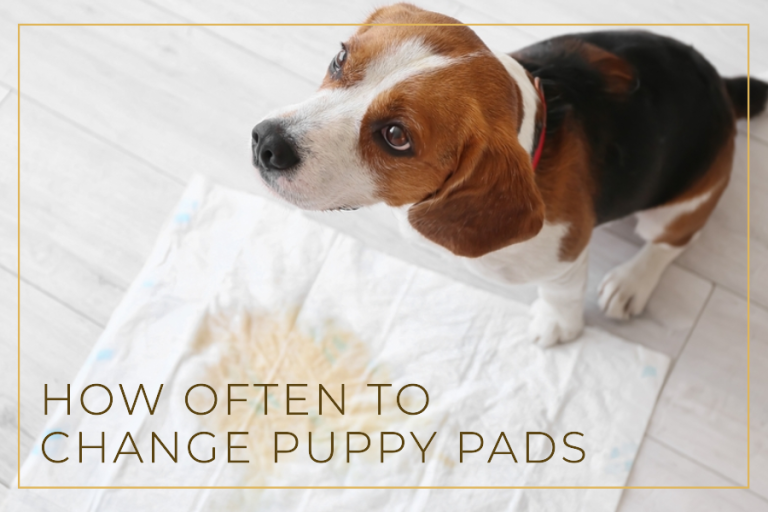How Do I Know If My Corgi Is Stressed? The Cry for Help
It’s safe to say that a Corgi is one of the cutest dog breeds around. We can’t get enough of the fox-like face, the fluffy, large butt, and the short, chubby legs.
Do these cute little critters ever feel uneasy in their own skin? Basically, yes. All dog breeds, like all people, can get stress. In truth, stress occurs when a Corgi perceives that the situation is not up to their expectations.
In light of this, this article will focus on the signs of stress in Corgi and methods for alleviating their anxiety.
How Do I Know If My Corgi Is Stressed?
When dogs are stressed, they show general signs like losing interest, acting differently, and feeling restless.
On the other hand, Corgis are very smart, and because they have adaptive reactions to stress, they are likely to act out more complex stress behaviors.
So it would help if you had attentive observation and understanding of your dogs to heal their underlying issues timely. Corgis can show their stress in a subtle and not apparent way as follow:
Increased Vocalization
Dogs use vocalizations to express themselves and express what they need.
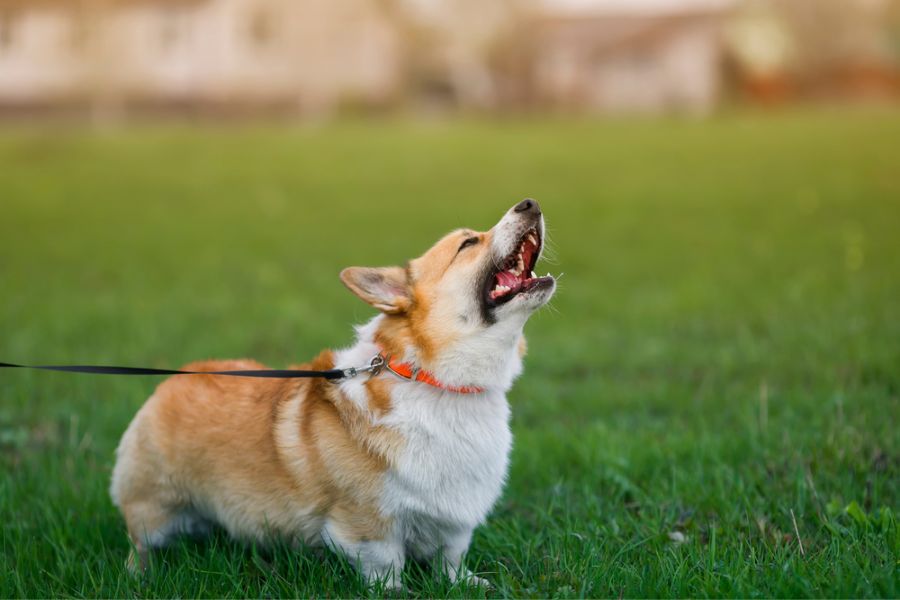
Barking is the most common and versatile form of vocalization in dogs. Corgis bark to warn their owners about possible intruders, when they are happy or angry, or when they are feeling uncomfortable or scared. Corgis, particularly Pembroke Welsh Corgis, tend to be vocal dogs.
Besides barking, other common forms of dog vocalization, when stressed, are whining, howling, and growling. Take great observation of these vocal signs.
Physical Cues

Sounds are the most apparent indicators for Corgis. But what if these dogs don’t attempt to bark since they are too drained of energy? When this is the case, you can look at their body positions, face expressions, and tail movements:
- Panting: Panting is rapid and heavy breathing. Dog panting is normal if it’s in response to heat or exercise. However, when Corgis pant excessively, it means they have underlying problems or discomfort.
- Tucked Tail: A tucked tail is a clear sign of fear or submission in dogs. When your Corgi is stressed, he may tuck its tail between its legs to convey discomfort.
- Dilated Pupils: Corgis can express their feelings through their faces and their eyes. When you see your Corgi’s eye dilated, maybe they are feeling threatened or uncomfortable.
Grooming
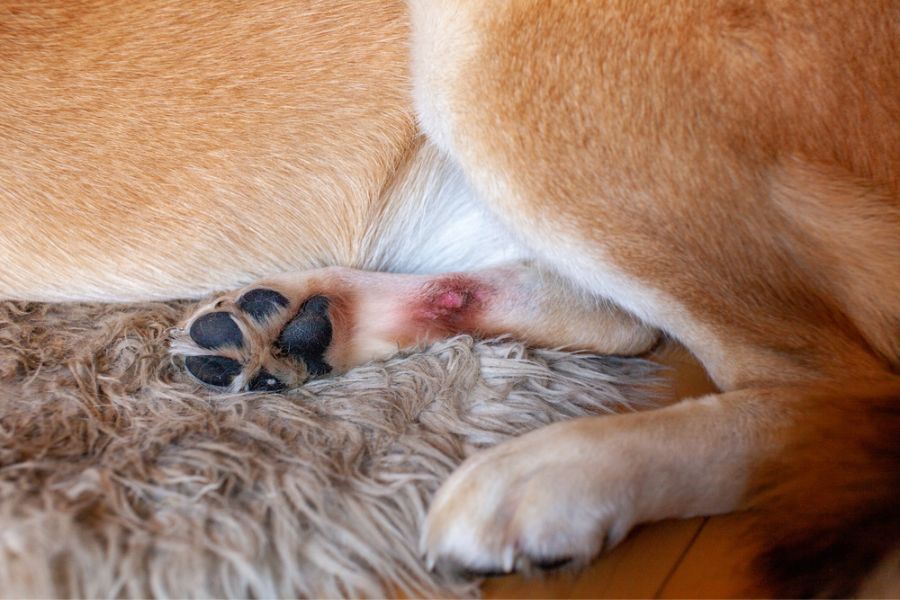
Just like other dogs, Corgis lick their fur to groom themselves, because it helps remove dirt and debris from their coat. However, if a Corgi has a food allergy, is upset or agitated, he or she may lick their fur excessively. When your Corgi licks too much, it will leave pinkish-brown stains on its fur, especially in one area.
Pacing
Corgis may exhibit restlessness and engage in repetitive behaviors like pacing back and forth when stressed. They may continuously move from one area to another, unable to settle down. They use this restless behavior to let go of pent-up stress energy to feel comfort or relief.
Aggressiveness
It’s easy to tell if your Corgi is stressed when they show signs of aggression. They might excessively scan their surroundings and remain on high alert for potential threats.
They usually indulge in destructive actions, chewing ferociously on furniture or anything else they can get their mouths on.
As they rely on the presence and support of their trusted humans, Corgis may seek constant reassurance or attention from their owner. And these aggressive tendencies are exacerbated by stress because of the increased need to seek solace and safety.
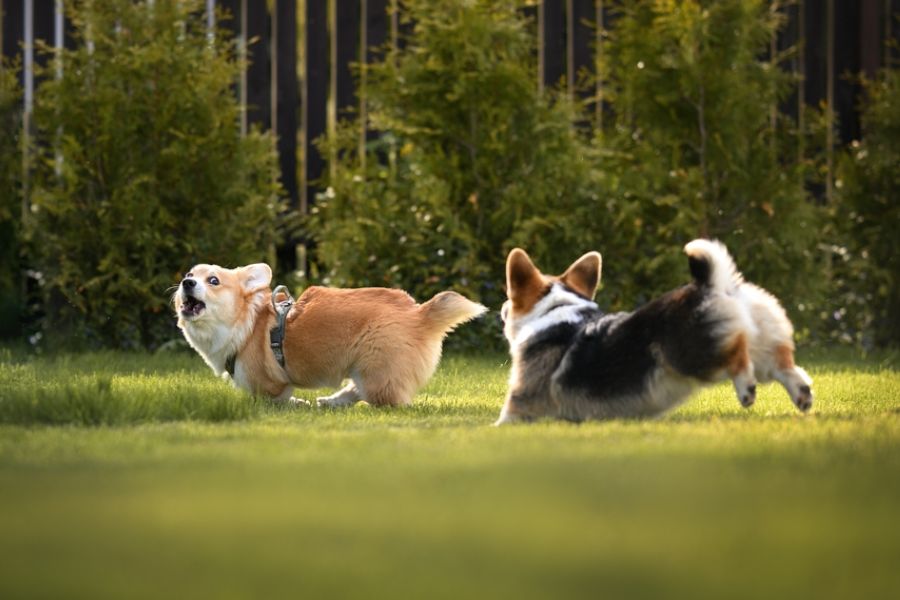
Some might just nudge or paw at their owner to gain their attention and seek solace. But some can even show uncharacteristic nipping or snapping toward their humans.
Another characteristic trait is that when Corgi is stressed, they may display behaviors that might appear bossy. To be “bossy” means these Corgis act in a dominant or controlling manner toward others, most commonly children and other pets.
Reduced Interest and Isolation
Stress can lead to a decreased interest in activities, toys, and food your Corgi usually enjoys. They may show disinterest in playing, seem unengaged, or need more enthusiasm.
Some Corgis have a more independent and self-reliant approach to stress. They may choose to withdraw or isolate themselves from others, including their owner. During such times, they may find a quiet and secluded spot where they can resolve their stressors on their own.
Some stressed Corgis might eat less than usual or lose interest in food. They might look at their food but not eat it, leave their food alone, or act like they don’t care when it’s meal time.
Why do Corgis Get Stressed?
Even though Corgis and other dog breeds are likely to react to stress in similar ways, including:
- Separation anxiety
- Changes in routine or environment
- Insufficient physical activity and infrequent playtime
- Conflicts with Strangers and Other Animals
The Corgi’s response to stress is unique due to a few traits and tendencies. In general, they are more sensitive to changes in their surroundings and can show signs of controlling:
Sensitivity
Corgis are known to be sensitive dogs. They can pick up on subtle changes in their environment, including their owner’s emotions and household dynamics. Easily seeing the changes means easily getting stressed.
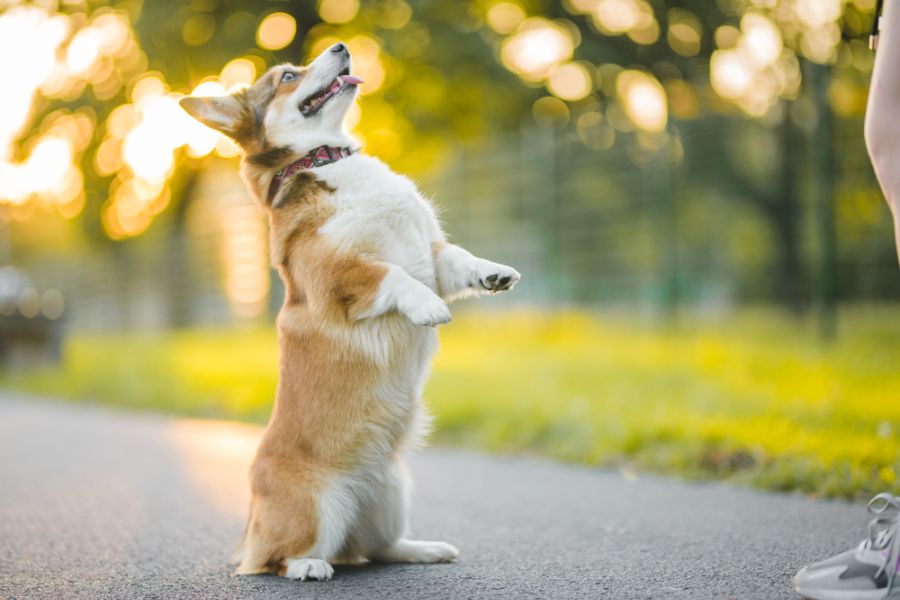
Herding Instinct
Corgis have a strong herding instinct ingrained in their breed’s history. This instinct is helpful for us, but it also makes them more motivated to change the world around them, just like the way they try to push or chase the animals to the right spots.
High Energy Levels
Corgis are a small to medium-sized breed with super high energy levels. If there is a lack of exercise, mental stimulation, and play and their energy needs are not fulfilled, they may become restless and frustrated.
Bonding with Owners
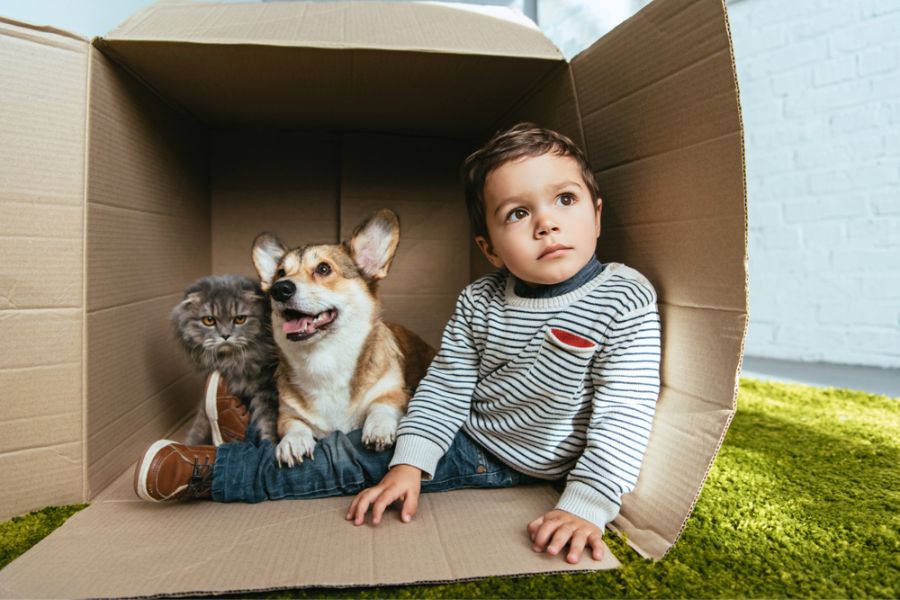
Corgis are loyal and form strong bonds with their owners. While this is a positive trait, it can also make them more reliant on their owners. Any changes or disruptions in their owner’s presence or the strength of their bond can potentially lead to stress and anxiety.
Conclusion
Life is stressful for an intelligent and cute dog like a Corgi. Knowing why your Corgi gets stressed can help you better address the stress cause and have an immediate solution for him or her. Let’s take back your lively Corgi every day.








